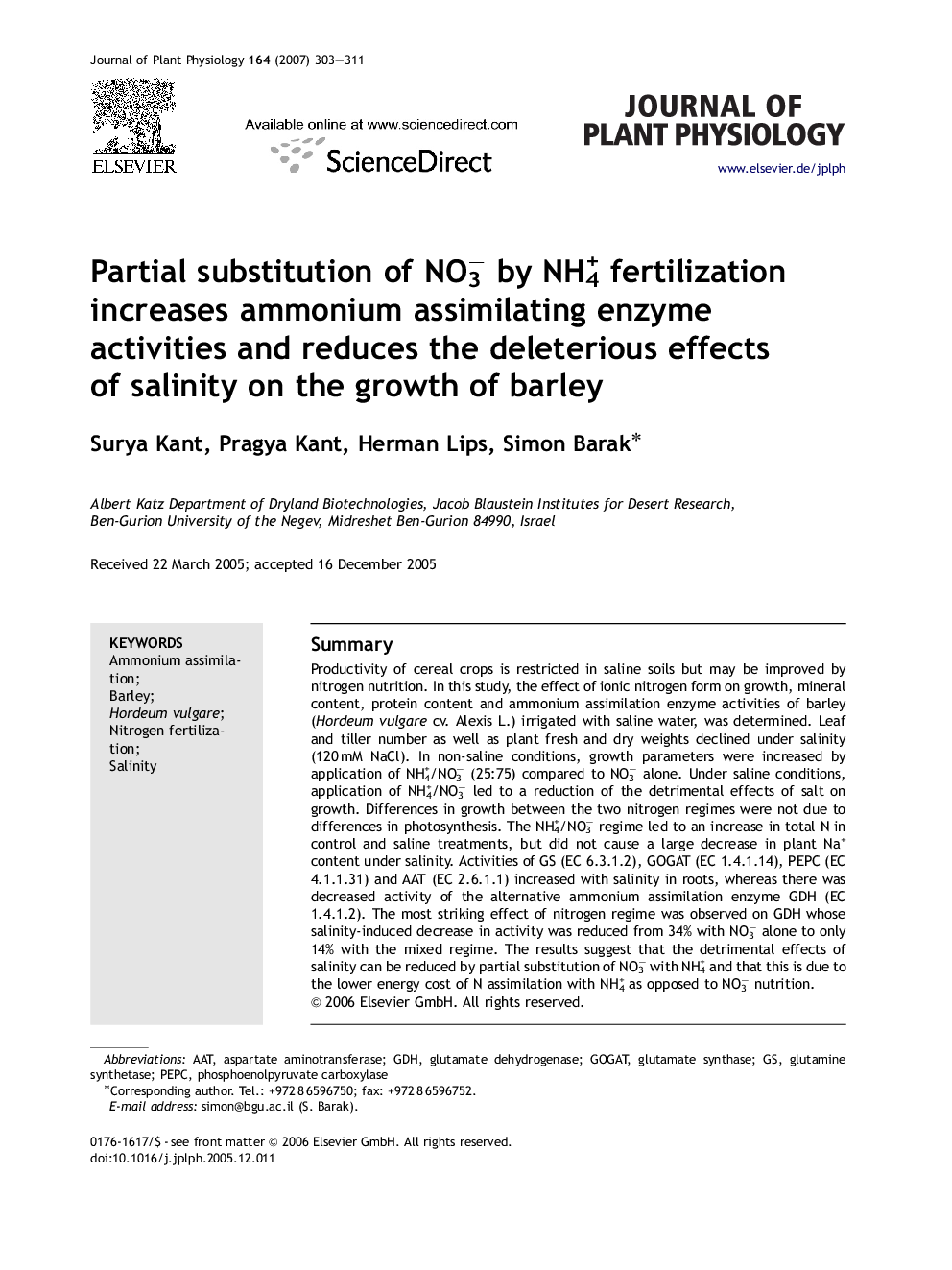| Article ID | Journal | Published Year | Pages | File Type |
|---|---|---|---|---|
| 2057209 | Journal of Plant Physiology | 2007 | 9 Pages |
SummaryProductivity of cereal crops is restricted in saline soils but may be improved by nitrogen nutrition. In this study, the effect of ionic nitrogen form on growth, mineral content, protein content and ammonium assimilation enzyme activities of barley (Hordeum vulgare cv. Alexis L.) irrigated with saline water, was determined. Leaf and tiller number as well as plant fresh and dry weights declined under salinity (120 mM NaCl). In non-saline conditions, growth parameters were increased by application of NH4+/NO3− (25:75) compared to NO3− alone. Under saline conditions, application of NH4+/NO3− led to a reduction of the detrimental effects of salt on growth. Differences in growth between the two nitrogen regimes were not due to differences in photosynthesis. The NH4+/NO3− regime led to an increase in total N in control and saline treatments, but did not cause a large decrease in plant Na+ content under salinity. Activities of GS (EC 6.3.1.2), GOGAT (EC 1.4.1.14), PEPC (EC 4.1.1.31) and AAT (EC 2.6.1.1) increased with salinity in roots, whereas there was decreased activity of the alternative ammonium assimilation enzyme GDH (EC 1.4.1.2). The most striking effect of nitrogen regime was observed on GDH whose salinity-induced decrease in activity was reduced from 34% with NO3− alone to only 14% with the mixed regime. The results suggest that the detrimental effects of salinity can be reduced by partial substitution of NO3− with NH4+ and that this is due to the lower energy cost of N assimilation with NH4+ as opposed to NO3− nutrition.
